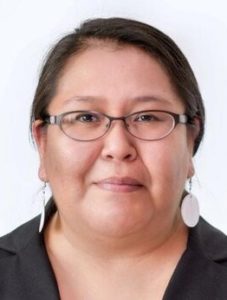Originally presented on
December 15 & 16, 2021
Materials:
- Recording
- Presentation slides – Day 1 (full-size slides)
- Presentation slides – Day 2 (full-size slides)
*Training certificates are only available following live trainings or completion of self-paced courses. A certificate will not be provided for review of these materials.
Cultural Humility: Working in and with Tribal Communities
Cultural humility, a process of reflection and lifelong inquiry, involves self-awareness of personal and cultural biases as well as awareness and sensitivity to significant cultural issues of others. Core to the process of cultural humility is the deliberate reflection on our values and biases. Practicing cultural humility not only means understanding how our values and biases can potentially cause harm to those we serve but also finding ways to work collaboratively with others, and their values and cultural beliefs, to provide the best service possible.
Learners will:
- Describe key aspects of identity development and racial and ethnic identity development
- Recognize the importance of racial and ethnic identity development particularly for American Indian youth
- Recognize why cultural humility is important while assessing own level of cultural humility
- Realize historical trauma experiences of American Indians/Alaskan Natives (AI/AN) and understand impacts on present day experiences
- Recognize racial trauma and microagressions
- Identity strategies for healing and resilience
Who should attend: All staff of family resource center (FRCs), child abuse prevention councils (CAPCs), and other family-serving organizations.
Supplemental Materials
- Cultural Responsiveness to Racial Trauma: Understanding Racial Trauma, Why it Matters, and What to Do
- Privilege worksheet
- How Microaggressions are Like Mosquito Bites (1:56)
Advisory: this video contains language which may be considered inappropriate. - Stages of Identity Development
- Impact vs Intent (2:06)
- 7 Essential Understandings for California Indian History and Culture
Veronica Willeto DeCrane
Training & Technical Assistance Manager
National Native Children’s Trauma Center (NNCTC)

Veronica Willeto DeCrane is Diné (Navajo), of the Many Hogans Clan and born for the Mexican Clan. She has extensive experience providing training and technical assistance to reservation schools and other agencies, supporting school turnaround, parent and community engagement, youth leadership and development, after-school programs, culturally responsive education, systems change, and the Positive Behavioral Interventions and Supports (PBIS) and Multi-Tiered System of Support (MTSS) frameworks. In her current role she manages a project focused on trauma-informed care within tribal juvenile justice systems and supports the NNCTC’s school-based efforts.
